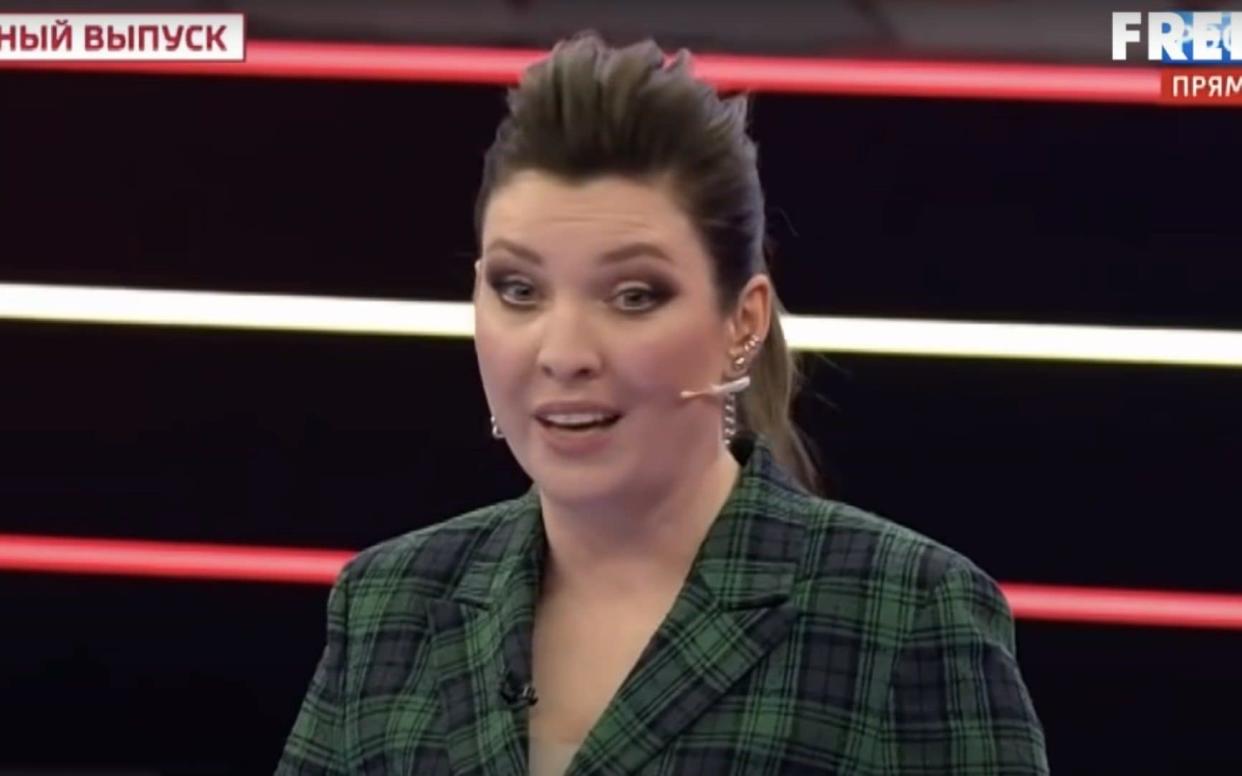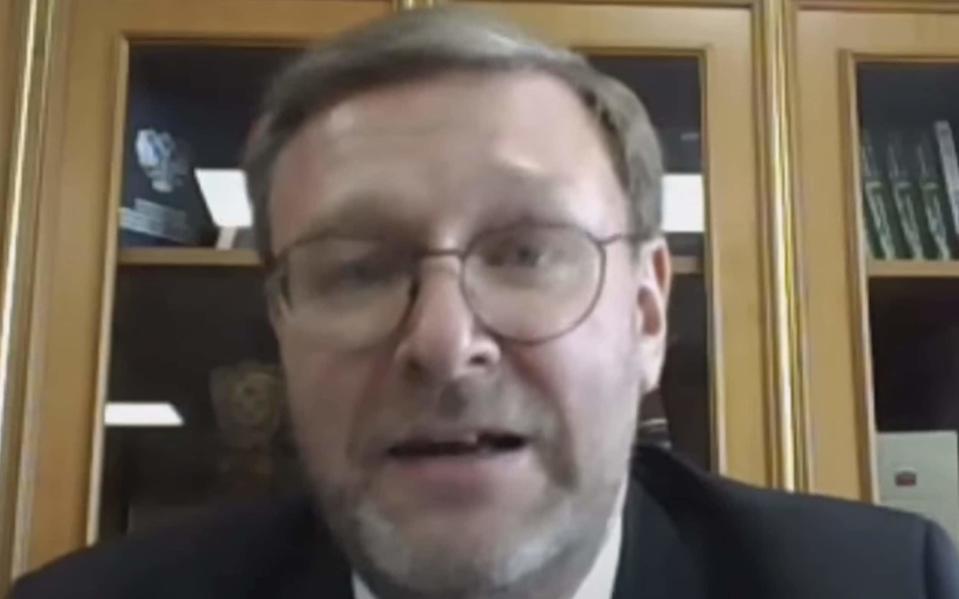‘The US wants to control the Arctic’: Russian state TV spins Finland’s Nato application

It was a historic week for Europe, with Finland and Sweden making the decisions to seek to join Nato. In Russia, however, state TV was quick to condemn the news, working hard to spin it into a US plot to expand its dominance into the Arctic Circle.
On Thursday morning, I tuned into 60 Minutes, a political talk show on the country’s most popular channel, Rossiya 1.
“What will the Finns and Swedes gain from this decision? That’s probably a rhetorical question because the main beneficiary here is America and Biden and the main objective is a new Iron Curtain from the Barents Sea to the Black Sea,” presenter Olga Skabeyeva railed.
Ms Skabeyeva is one of several Russian TV personalities now on the EU sanctions list for undermining the “territorial integrity” of Ukraine.
Her remarks set the tone for the day’s coverage across the hours of political panel shows which now dominate TV schedules. Since Moscow’s invasion of Ukraine, almost all entertainment programmes have been dropped. TV remains the primary source of information for the majority of Russians and its messaging is tightly controlled by the Kremlin.
The focus of what Russia calls its “special military operation” was initially on the “demilitarisation” and “denazification” of Ukraine. But the longer it drags on, the more TV is framing it as a key but single front in a defensive battle being waged by the besieged fortress of Russia against aggression from the West, and Washington in particular.
It is in those terms that Finland’s and Sweden’s plans have been presented to Russians.
Rustem Klupov, a retired military intelligence agent appearing on Skabeyeva’s show, branded the moves an “escalation of the conflict” between Russia and the West.
“We cannot but view it as a threat,” presenter Dmitry Kulikov of Who Is Against?, an afternoon talk show on Rossiya 1, told his viewers.
Finland is “challenging” Russia and “pouring oil on the fire,” declared Ruslan Ostashko, co-host of Time Will Tell, yet another TV talk show.
In the evening, the story also featured prominently on the primetime news bulletins.
Russia’s third-most popular channel NTV, which is owned via a media holding by energy giant Gazprom, announced that “the story of Nato potentially expanding towards Russia’s borders continued today.”
It pointed out that if Finland does join, the alliance’s land border with Russia will double in length overnight.
Speaking to Rossiya 1’s news programme, Konstantin Kosachyov, a prominent voice on foreign policy in the Russian parliament, lamented that the “expansion of Nato is a knife in the back of Europe’s collective security”.

Russian state media have long claimed that Europe has no foreign policy of its own and simply follows Washington’s lead. They also saw the long arm of the US in the developments in Helsinki.
Senator Andrei Klimov told Rossiya 1 that the US had been lobbying Finland to join Nato for years, “so that it can consolidate its presence in the Arctic”.
Nato’s aim is to “continue its expansion towards Russia’s borders and to create yet another flank for the military threat to our country”, the channel added.
Reports that public opinion in Finland has shifted abruptly in favour of Nato membership because of Russia’s actions in Ukraine have been dismissed or ignored.
“Our Finnish comrades need to have a think. It’s clear that their current leadership is more than wholeheartedly pro-Western. They don’t even want to hold a referendum. They’ve done some surveys which by chance showed that in two weeks, the number of people backing Nato membership doubled. Seriously?” pundit Dmitry Yegorchenkov scoffed on 60 Minutes.
Such a view was echoed on another programme, The Great Game, where military analyst Alexei Leonkov claimed that: “Finland did not make the decision today. It just used the opportunity today. They have been preparing for it for a long time.”
Francis Scarr is a journalist with BBC Monitoring which reports and analyses news from media around the world.

 Yahoo News
Yahoo News 
